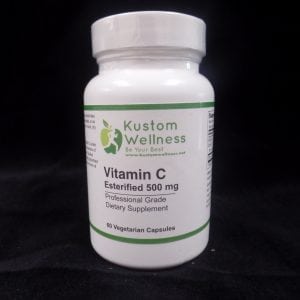Flax Seed Oil / 1000 mg / 100% Organic / Lignan Rich Virgin Oil
Flax Seed Oil may be useful to supplement diet with omega-3 fatty acids
DESCRIPTION
Flax seed oil is nature’s most concentrated source of alpha-linolenic acid (ALA), an essential omega-3 fatty acid. Flax Seed Oil provides 55-60% ALA as well as significant amounts of oleic acid and the essential linoleic acid in their natural triglyceride forms. Flax Seed Oil is extracted without the damaging effects of heat, light, and oxygen using a mechanical expeller press. Using this process, the oil never is exposed to temperatures above 96 F, and it retains its natural color and contents of naturally occurring fatty acids, phosphatides, vitamins, minerals, and antioxidants. Flax Seed Oil is available as a liquid or in softgel form.
FUNCTIONS
Typical diets in developed countries deliver large amounts of saturated fatty acids and the polyunsaturated omega-6 linoleic and arachidonic acids and low levels of omega-3 fatty acids. Throughout evolution, humans were accustomed to diets providing roughly equal amounts of omega-6 and omega-3 fatty acids. However, during the last 200 years, the ration of dietary omega-6:omega:3 fatty acids increased from about 1:1 to 20-25:1. Leading health professionals now recommend ratios between 4:1 and 10:1. A healthy balance of dietary omega-6 and omega-3 fatty acids appears to be a prerequisite for normal immune function. Dietary linoleic acid (18:2 omega-6) is a precursor to arachidonic acid (20:4) which in turn is a precursor for pro-inflammatory prostaglandin E2 and leukotriene B4, and platelet aggregating thromboxane A2. The omega-3 fatty acid ALA provides a natural counterbalance, because it is metabolized to the long chain omega-3 fatty acids EPA (eicosapentaenoic acid) and DHA (docosahexaenoic acid), which serve as precursors for the anti-inflammatory prostaglandins E1 and E3, and decrease the formation of prostaglandin E2 and thromboxane A2. Among other factors, sufficient dietary levels of ALA and other omega-3 fatty acids are also important for healthy mucous membranes, skin and hair, and serve as precursors for steroid production and hormone synthesis.
Call for Pricing
Product Description
Flax Seed Oil may be useful to supplement diet with omega-3 fatty acids
DESCRIPTION
Flax seed oil is nature’s most concentrated source of alpha-linolenic acid (ALA), an essential omega-3 fatty acid. Flax Seed Oil provides 55-60% ALA as well as significant amounts of oleic acid and the essential linoleic acid in their natural triglyceride forms. Flax Seed Oil is extracted without the damaging effects of heat, light, and oxygen using a mechanical expeller press. Using this process, the oil never is exposed to temperatures above 96 F, and it retains its natural color and contents of naturally occurring fatty acids, phosphatides, vitamins, minerals, and antioxidants. Flax Seed Oil is available as a liquid or in softgel form.
FUNCTIONS
Typical diets in developed countries deliver large amounts of saturated fatty acids and the polyunsaturated omega-6 linoleic and arachidonic acids and low levels of omega-3 fatty acids. Throughout evolution, humans were accustomed to diets providing roughly equal amounts of omega-6 and omega-3 fatty acids. However, during the last 200 years, the ration of dietary omega-6:omega:3 fatty acids increased from about 1:1 to 20-25:1. Leading health professionals now recommend ratios between 4:1 and 10:1. A healthy balance of dietary omega-6 and omega-3 fatty acids appears to be a prerequisite for normal immune function. Dietary linoleic acid (18:2 omega-6) is a precursor to arachidonic acid (20:4) which in turn is a precursor for pro-inflammatory prostaglandin E2 and leukotriene B4, and platelet aggregating thromboxane A2. The omega-3 fatty acid ALA provides a natural counterbalance, because it is metabolized to the long chain omega-3 fatty acids EPA (eicosapentaenoic acid) and DHA (docosahexaenoic acid), which serve as precursors for the anti-inflammatory prostaglandins E1 and E3, and decrease the formation of prostaglandin E2 and thromboxane A2. Among other factors, sufficient dietary levels of ALA and other omega-3 fatty acids are also important for healthy mucous membranes, skin and hair, and serve as precursors for steroid production and hormone synthesis.






Reviews
There are no reviews yet.